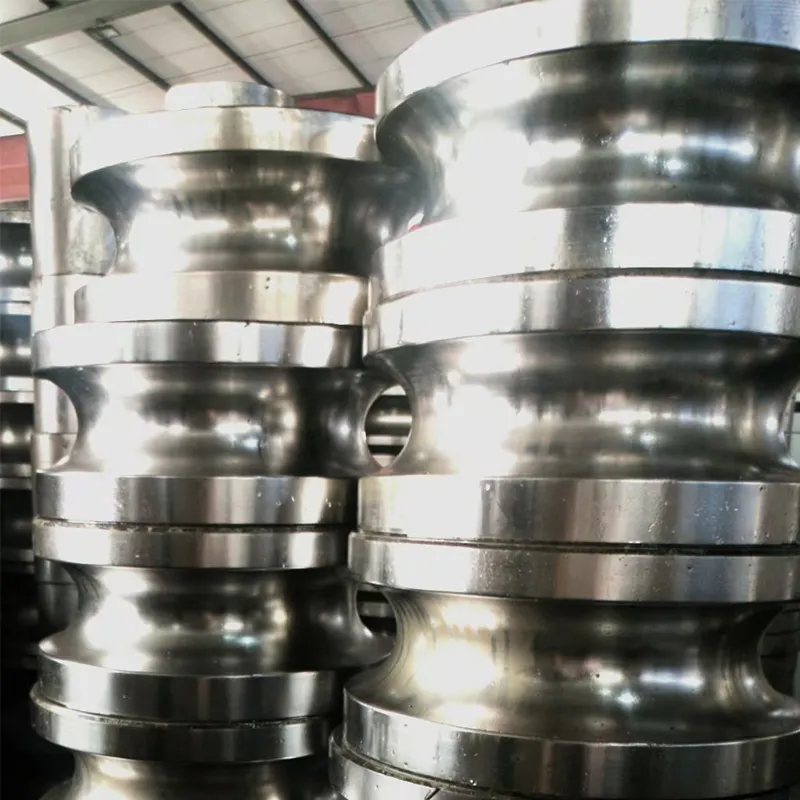Various Types of Roll Forming Machines for Diverse Industrial Applications
Types of Roll Forming Machines
Roll forming is a continuous bending operation in which a long strip of metal is passed through consecutive pairs of rolls that form it into a desired cross-sectional profile. Widely employed in the manufacturing industry, roll forming machines are versatile tools used to create a variety of metal components used in numerous applications, including construction, automotive, and appliance manufacturing. This article provides an overview of the different types of roll forming machines and their specific applications.
1. Standard Roll Forming Machines
The standard roll forming machine is the most common type, characterized by its simplicity and efficiency. These machines are equipped with a series of rollers that shape a flat metal strip into a specific profile, such as Z-girts, C-channeled sections, or U-shaped components. Standard roll forming machines are typically used for producing bulk quantities of components, making them ideal for industries that require high-volume production, such as metal building systems and manufacturing of rain gutters.
2. Precision Roll Forming Machines
For applications requiring high dimensional accuracy and complex profiles, precision roll forming machines are the preferred choice. These machines feature advanced controls and may be equipped with additional technologies such as laser measurement systems to ensure precise dimensions throughout the production process. Precision roll forming is often utilized in the automotive and aerospace industries, where stringent tolerances are crucial for the performance and safety of the end products, such as brackets, frames, and reinforcements.
3. Multi-Profile Roll Forming Machines
Multi-profile roll forming machines are designed for versatility, allowing for multiple profiles to be produced using the same machine. These machines can switch between different tooling setups quickly, enabling manufacturers to create a variety of shapes without significant downtime. This flexibility is particularly beneficial for companies that serve diverse markets or experience fluctuating demand for different products. Multi-profile machines are commonly used in industries such as HVAC, where components like ducts and framing can vary widely in size and shape.
types of roll forming machine

4. Servo Drive Roll Forming Machines
Servo drive roll forming machines offer enhanced precision and speed through the use of servo motors. Unlike traditional roll formers that rely on mechanical drives, servo-driven machines allow independent control of each roll, enabling more complex shapes and profiles to be formed with greater accuracy. This technology is particularly advantageous for producing intricate designs or components that require variable speed and torque adjustments. Servo drive machines are increasingly popular in sectors where innovation and advanced design capabilities are critical, such as electronics and renewable energy.
5. Automated Roll Forming Machines
With the rise of Industry 4.0 and smart manufacturing practices, automated roll forming machines have gained prominence. These machines incorporate robotic systems and advanced software, allowing for higher levels of automation and integration into production lines. Automated roll forming can significantly increase throughput, reduce labor costs, and improve product consistency. Industries that benefit from automated systems include the construction sector, where large volumes of roofing panels and wall studs need to be produced efficiently.
6. Custom Roll Forming Machines
As industries strive for unique solutions tailored to their specific needs, custom roll forming machines have become increasingly important. Manufacturers can design machines that cater to unique shapes, sizes, and materials required by their clients. Customization may involve special tooling, unique feed designs, or even integration with other manufacturing processes. Custom roll forming is essential in niche markets, including specialized furniture manufacturing and bespoke architectural components.
Conclusion
The diversity of roll forming machines reflects the wide-ranging needs of modern manufacturing. From standard and precision machines to sophisticated automated and custom solutions, each type serves a purpose tailored to specific applications. As technology continues to evolve, the roll forming industry is expected to see further innovations that enhance precision, efficiency, and capabilities, ultimately shaping the future of metal component production. Understanding these different types of roll forming machines is crucial for manufacturers seeking to optimize their production processes and meet the demands of an increasingly competitive market.
-
High Frequency Straight Seam Welded Pipe Production Line-BzZhou Xinghua Machinery Equipment Manufacturing Co., LTD.|Precision Welding, High EfficiencyNewsJul.30,2025
-
High Frequency Straight Seam Welded Pipe Production Line|BzZhou Xinghua|Precision Welding&EfficiencyNewsJul.30,2025
-
High Frequency Straight Seam Welded Pipe Production Line - BzZhou Xinghua|Precision Engineering&EfficiencyNewsJul.30,2025
-
High-Frequency Straight Seam Welded Pipe Production Line-BzZhou Xinghua Machinery Equipment Manufacturing Co., LTD.NewsJul.30,2025
-
High-Frequency Straight Seam Welded Pipe Production Line-BzZhou Xinghua Machinery Equipment Manufacturing Co., LTD.|Precision Manufacturing, High EfficiencyNewsJul.30,2025
-
High Frequency Straight Seam Welded Pipe Production Line-BzZhou Xinghua Machinery Equipment Manufacturing Co., LTD.|Precision Steel Pipe Manufacturing&Industrial EfficiencyNewsJul.29,2025


